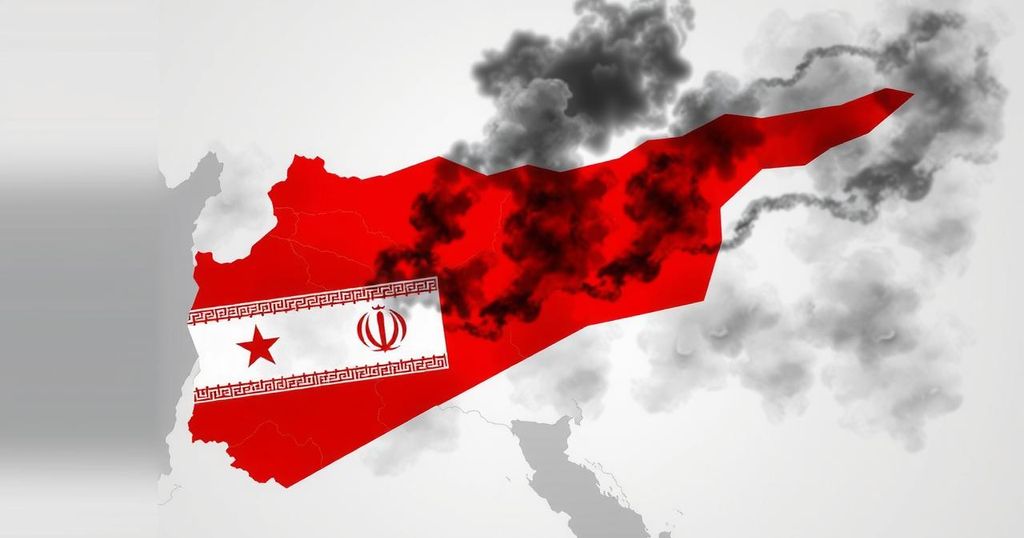The Fallout of Syria’s Rebel Takeover: Implications for Regional Powers

The recent fall of Bashar al-Assad marks a pivotal moment in Syria’s civil war, leading to a power vacuum among various armed groups, particularly the formidable Hayat Tahrir al-Sham. Turkey seeks to leverage this change to counter Kurdish threats while Iran and Russia face strategic losses. The future hinges on the establishment of a transitional government to unify and stabilize the fractured state, amidst ongoing regional rivalries and international interests.
The recent ousting of Bashar al-Assad from the Syrian presidency has sparked a turbulent shift in power dynamics within the region. During a conversation with a Syrian expatriate in the UK, it was observed that many compatriots are filled with hope for returning to a liberated homeland. However, Syria remains a fractured entity, divided among various armed factions, each backed by influential global powers, such as Russia, Iran, Turkey, the United States, the Gulf states, and Israel. The most formidable rebel group, Hayat Tahrir al-Sham (HTS), has dramatically expanded its control, overpowering key cities including Aleppo and soon Damascus, while strategically distancing itself from extremist affiliations.
Turkey’s involvement has been pivotal, providing tactical backing to HTS, especially after Assad’s rejection of normalization overtures from Ankara. With a significant influx of Syrian refugees within its borders, Turkey aims to facilitate their return, while simultaneously countering Kurdish factions that pose a threat to its national integrity. Conversely, Iran’s loss of Assad’s regime represents a strategic setback, severing its land corridor to the Mediterranean and undermining its support for allied militia forces like Hezbollah, particularly in the context of ongoing conflicts with Israel.
Russia, too, experiences a diminished role following its decisive military support of Assad, now compromised by competing priorities, particularly its engagement in Ukraine. The stability of Russian military installations within Syria is jeopardized as diplomatic efforts to maintain influence have waned. The international community’s failure to broker a viable peace has led to a fractured landscape where different groups, including the Kurdish-led Syrian Defence Forces and the Turkish-aligned Syrian National Army, vie for territorial supremacy.
As the various factions maneuver for power, the immediate task ahead involves the creation of a unified transitional government. If the disparate rebel groups fail to establish a cohesive governance structure, other regional players may inevitably exploit this vacuum. Ultimately, the path forward hinges on the efforts of Syrians, whether exiled or local, to forge a new state based on their visions, aspirations, and collective experiences.
The Syrian civil war has produced a complicated landscape of power and governance, illustrating the complex interplay between local groups and international actors. Since the conflict’s inception in 2011, multiple factions have emerged, each with distinct ideologies and foreign affiliations. The Syrian conflict, while being a domestic struggle for power and control, also serves as a battleground for regional and global influences, significantly impacting neighboring countries and broader geopolitical interests. The recent developments following the possible fall of Assad’s regime elevate existing tensions among these international players, each vying to protect and promote their interests within the region.
The ousting of Bashar al-Assad has not only transformed the power structure in Syria but has also reshaped regional dynamics. Major players like Turkey, Iran, and Russia find themselves grappling with the repercussions of a fragmented Syria. As factions like HTS and the Kurdish-led Syrian Defence Forces gain ground, the future of governance in Syria hangs in the balance. The urgent need for a unified Syrian government remains critical, as the ongoing struggles among competing groups could lead to increased instability, further complicating the region’s recovery and peace-building efforts.
Original Source: theconversation.com








